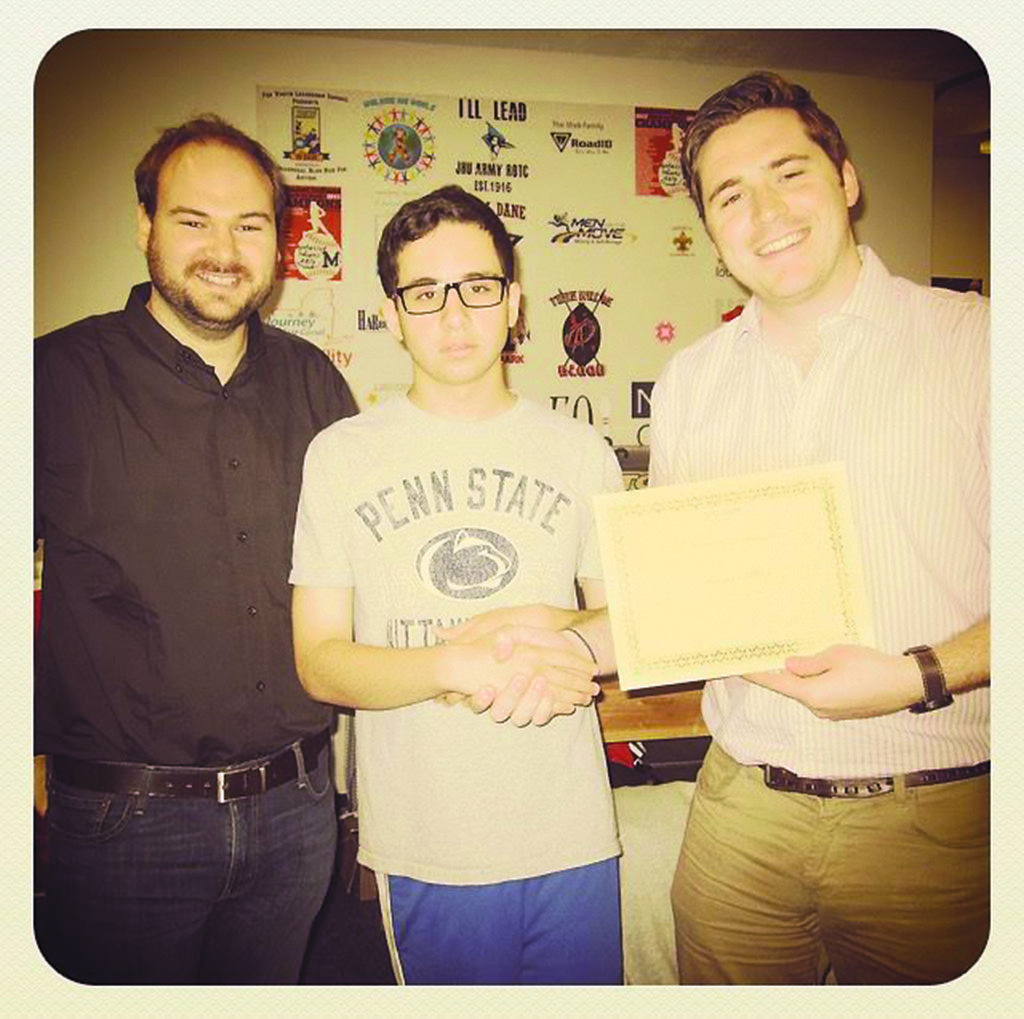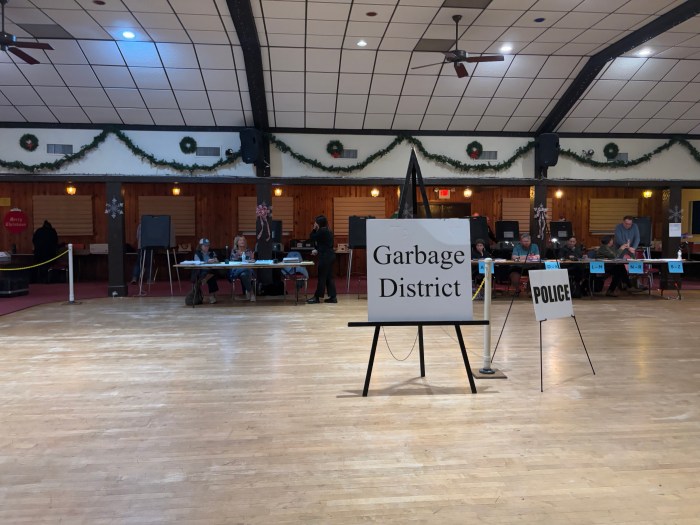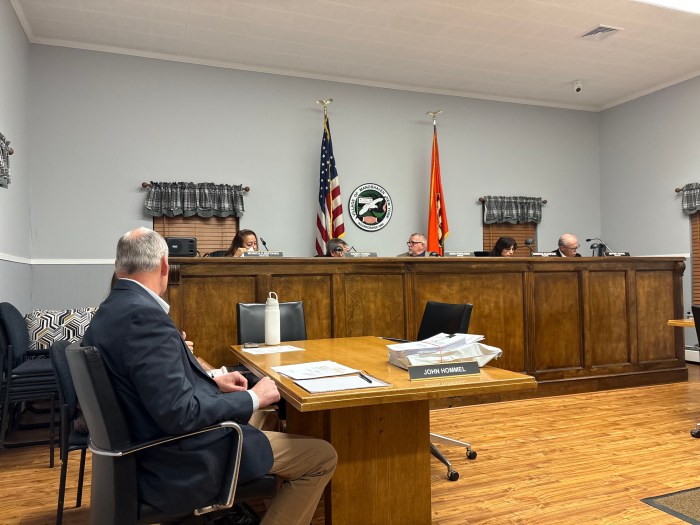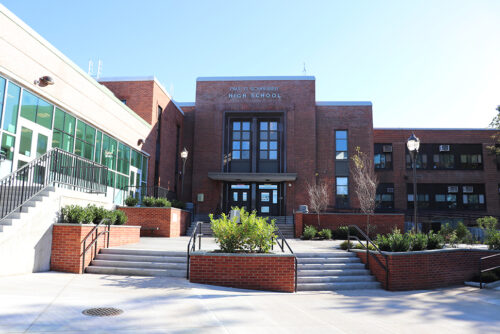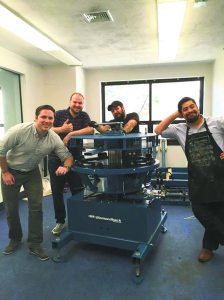 This innovative nonprofit offers children with autism a productive future
This innovative nonprofit offers children with autism a productive future
A parent’s biggest concern is the future of their children; especially if one is affected by autism. That’s what Manhasset residents Stella Spanakos and Nicole Sugrue feared for their sons Nicholas and Adem. When it comes to figuring out a path for people with autism, few opportunities exist. A study conducted in 2014 revealed
that only 19.3 percent of those with disabilities in the U.S. were involved in the labor force.
That’s why Spanakos, Sugrue and Patrick Bardsley began a nonprofit foundation called Spectrum Designs that produces customized T-shirts, apparel the autism spectrum with an opportunity of a lifetime.
In 2010, the three set up the business in Spanakos’s backyard barn, involving students from Manhasset High School’s Life Skills class. Soon thereafter, the company took off and moved to its current location on Main Street in Port Washington.
Spectrum Designs has expanded its social enterprises to offer more opportunities and experiences for different individuals through Spectrum Grows, Spectrum Bakes and Spectrum Suds.
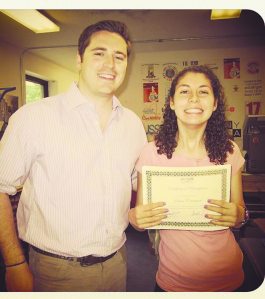 From the production specialists to the floor helpers, Spectrum Designs provides a comfortable environment for all with autism. It’s a big deal for most employees who come to Spectrum, because many had never held a job. According to Advancing Futures for Adults with Autism, 90 percent of adults with autism are either unemployed or underemployed.
From the production specialists to the floor helpers, Spectrum Designs provides a comfortable environment for all with autism. It’s a big deal for most employees who come to Spectrum, because many had never held a job. According to Advancing Futures for Adults with Autism, 90 percent of adults with autism are either unemployed or underemployed.
Finding a job is difficult for people with autism, mainly due to the lack of opportunity. Plus, most places that do employ people with autism don’t offer an environment that fits their needs like Spectrum does. That’s exactly why president and cofounder Patrick Bardsley says it’s a huge transition for people with autism to hold a job.
Spectrum is a place for workers to learn and grow. Bardsley notices a huge difference in the people who come to work there. He sees that their employees tend to be quiet and reserved initially, but as time goes on and their jobs become more routine, they begin to immerse themselves in the environment.
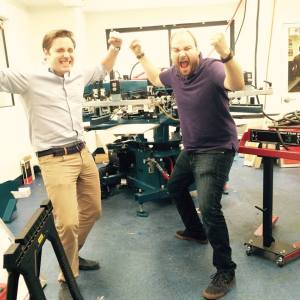 Not only does Spectrum benefit the employees with autism, but it benefits everyone who works there, says cofounder and CEO Stella Spanakos. “Everyone at Spectrum is proud to earn a paycheck, and the sense of self-worth that accompanies that experience is what the human spirit is all about.” Spectrum is a special place that gives all employees the utmost attention and respect. It created a legitimate workspace where workers clock in and out every day, receive a paycheck every Friday and have work schedules to fit everyone’s needs. Spanakos sees many positive changes in young adults who work at the foundation, too. “We have had participants that originally needed to be in a one-to-one work environment blossom. Two years later, they are in a three-to-one supervision ratio, working independently.”
Not only does Spectrum benefit the employees with autism, but it benefits everyone who works there, says cofounder and CEO Stella Spanakos. “Everyone at Spectrum is proud to earn a paycheck, and the sense of self-worth that accompanies that experience is what the human spirit is all about.” Spectrum is a special place that gives all employees the utmost attention and respect. It created a legitimate workspace where workers clock in and out every day, receive a paycheck every Friday and have work schedules to fit everyone’s needs. Spanakos sees many positive changes in young adults who work at the foundation, too. “We have had participants that originally needed to be in a one-to-one work environment blossom. Two years later, they are in a three-to-one supervision ratio, working independently.”
One of the most challenging things people with autism face is social disconnect. They may have trouble interacting, speaking, listening and generally communicating. It can be difficult for a company to communicate with people who have autism, however Spectrum Designs knows how to make it happen. The company’s cofounder and director of development Nicole Sugrue uses her educational background in behavior analysis and an advanced certificate in autism to guide the foundation to its success.
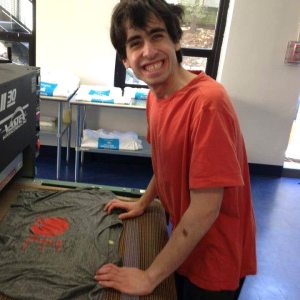 She says, “My educational background and experience is the foundation of all my input to the educational team in how we adapt our environment and task.” When it comes to making “knowledgeable decisions,” her awareness in behavior is helpful when they look to make changes and improvements to the system. Sugrue also addresses the steps it takes to complete a project. “There is a tremendous amount of communication and engagement that is necessary to get the job done, so the daily social opportunities are inherently present on our workshop floor.”
She says, “My educational background and experience is the foundation of all my input to the educational team in how we adapt our environment and task.” When it comes to making “knowledgeable decisions,” her awareness in behavior is helpful when they look to make changes and improvements to the system. Sugrue also addresses the steps it takes to complete a project. “There is a tremendous amount of communication and engagement that is necessary to get the job done, so the daily social opportunities are inherently present on our workshop floor.”
Communication is key to the success of the foundation. Spectrum Designs has been touching the lives of autistic teens and young adults for fi ve years, while also increasing sales. In 2013, with only two years of experience, Spectrum’s annual sales reached $250,000 and their 2014 sales doubled to almost $500,000. Spectrum Designs is expected to reach $1 million by the end of this year and has expanded its operation in a building two doors away, where it has an outdoor vegetable garden and hydroponic tanks for year-round growing, packages granola bars and even does laundry for local businesses.
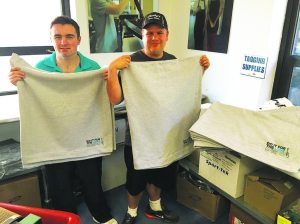 The variety of social enterprises offers varied real world vocational employment opportunities to different individuals. The goal is lifelong employment as these teens become adults. The workers at Spectrum Grows sell basil and tomatoes to neighbor H on the Harbor and local restaurants. Spectrum Bakes prepares chocolate, coconut, flax seed and raisin granola bars for party favors—and makes flavored kale chips from the hydroponic greens it grows. The Spectrum Suds crew not only does laundry for local residents and businesses (think clean towels at your favorite gym), but picks up and delivers, which teaches the workers how to navigate the area and interact with customers.
The variety of social enterprises offers varied real world vocational employment opportunities to different individuals. The goal is lifelong employment as these teens become adults. The workers at Spectrum Grows sell basil and tomatoes to neighbor H on the Harbor and local restaurants. Spectrum Bakes prepares chocolate, coconut, flax seed and raisin granola bars for party favors—and makes flavored kale chips from the hydroponic greens it grows. The Spectrum Suds crew not only does laundry for local residents and businesses (think clean towels at your favorite gym), but picks up and delivers, which teaches the workers how to navigate the area and interact with customers.
Custom orders can be placed at www.spectrumdesigns.org or purchased from the online shop at www.spectrumdesigns.myshopify.com.



